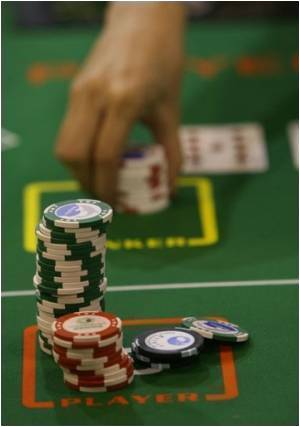The seemingly random throw of the dice can actually be predicted, claim researchers from the Technical University of Lodz, Poland.

The researchers created a three-dimensional model of the die throw and compared the theoretical results to experimental observations.
By using a high speed camera to track the die's movement as it is thrown and bounces, they found the probability of the dice landing on the face that is the lowest one at the beginning is larger than the probability of landing on any other face.
This suggests that the toss of a symmetrical die is not a perfectly random action.
"Theoretically the die throw is predictable, but the accuracy required for determining the initial position is so high that practically it approximates a random process," said Marcin Kapitaniak, a Ph.D. student at the University of Aberdeen, Scotland.
"Only a good magician can throw the die in the way to obtain the desired result," he noted.
Advertisement
When the die bounces on the table, it is more difficult to predict the result than in the case of a die landing on the soft surface," Kapitaniak said.
Advertisement
Source-ANI









